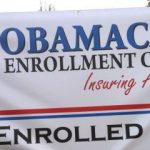Two of the leading bipartisan groups that focus on fiscal responsibility have issued warnings to President-elect Donald Trump and the new Republican Congress that upcoming budget matters, and especially Obamacare reforms, must be handled in a way that does not increase the projected federal debt or damage Medicare.
The nation’s accumulated debt is expected to hit $20 trillion within days but The Concord Coalition fears that Capitol Hill politics will overshadow a clear-thinking process:
(Creating a 2018 budget) is also where critical trade-offs must be made to ensure that tax and spending proposals fit within a responsible framework. This can serve as a needed reality check on random campaign promises that were made primarily for their vote-getting appeal.
In recent years, budget resolutions have become more about political messaging and less about actual fiscal guidance. The delayed fiscal year 2017 budget resolution now under consideration is a good example. Its purpose is not to set in place a blueprint for the fiscal year, which is one-third over, but to establish a fast-track mechanism for repeal of the Affordable Care Act. The numbers are merely incidental and bear no relationship to Republican policy proposals.
The coalition urged Congress to raise the debt limit in a timely manner to avoid problems with the U.S. credit rating and to ensure that a repeal of the Affordable Care Act simultaneously includes a replacement.
At the Committee for a Responsible Federal Budget, they put out a report last week that said repeal of Obamacare without a replacement would leave 23 million Americans uninsured while it would actually cost the federal government $350 billion over a decade. That amount drops to $150 billion if the always-controversial dynamic scoring method is used. That approach attempts to estimate increased economic activity over the next 10 years due to changes in taxes and spending.
Maya MacGuineas, president of CRFB, wrote an opinion piece earlier this week that said a more likely outcome in the House and Senate is some kind of staggered approach involving immediately repealing the ACA mandates and taxes (essentially gutting the program) while delaying the repeal of the other coverage provisions as a replacement package is crafted. That approach would potentially save from $550 billion (for two years) to $300 billion (for four years.)
The CFRB has warned that full repeal of the ACA would spell big trouble for the Medicare program. Under current law, CBO projects Medicare’s Part A trust fund for hospitalization will exhaust its reserve by 2026. But full repeal of Obamacare would hasten that insolvency date to 2021 and more than triple the program’s 10-year deficit.
Photo: WCBY-TV, Bristol, Va., screenshot



 (Creating a 2018 budget) is also where critical trade-offs must be made to ensure that tax and spending proposals fit within a responsible framework. This can serve as a needed reality check on random campaign promises that were made primarily for their vote-getting appeal.
(Creating a 2018 budget) is also where critical trade-offs must be made to ensure that tax and spending proposals fit within a responsible framework. This can serve as a needed reality check on random campaign promises that were made primarily for their vote-getting appeal.



